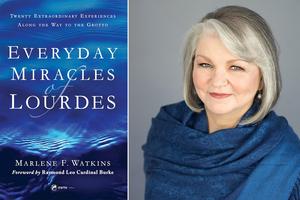There’s a Price to Pay When the Church Dispenses With Its Traditions
COMMENTARY: The Vatican’s apparent openness to forgo some of its longstanding institutional privileges risks reducing the Church to the status of being merely another secular organization.

On Aug. 8, Pope Francis received Josep-Lluís Serrano Pentinat, coadjutor bishop of Urgell, in audience. On paper, it looked like just another visit with one of the many newly elected bishops in the world. But there was something more interesting about this meeting.
The bishop of Urgell is, with the president of the French Republic, also co-prince of the tiny state of Andorra, a small enclave between France and Spain in the Pyrenees.
Bishop Serrano, coming from the ranks of the Secretariat of State, is Catalan, an essential precondition for genuinely understanding the Diocese of Urgell and the particular situation that exists with Andorra. Significantly, he is taking over the diocese after only a few months of apprenticeship as coadjutor to Bishop Joan Enric Vives i Sicilia, who reached retirement age on July 24.
The broader context is that Andorra happens to have an openly gay prime minister, and there is a strong push underway there to legalize abortion. Because of this latter fact, some have suggested the Holy See accept a change in the Andorran constitution that would allow the bishop of Urgell’s right to be co-prince of Andorra to lapse, because the Vatican doesn’t want to be party to this legalization.
But does the Holy See really have to give up an honorary title to finally be at peace with the world? Does the Holy See really have to abandon ancient traditions, albeit centuries-old, to fulfill its mission in society?
Such willingness to surrender seemingly esoteric traditional rights is not a necessary contemporary imperative, as the example of France illustrates.
Despite its deep-seated secularism, the French Republic has held on to both its own co-prince status as well as its traditional right to confer the red hat on new cardinals who are residents on French soil. In addition, the president of France remains a canon of St. John Lateran Basilica, a right inherited from France’s royalty.
Yet the Catholic Church under Pope Francis prefers to break some ancient traditions, avoiding them when they may seem controversial or emptying them of meaning in the name of renewal.
For example, Pope Francis changed the Vatican protocol for meeting with the heads of state, consenting that divorced-and-remarried people can visit him with their new spouse. Before this change, the second spouse was introduced later and was not considered part of the delegation because the Pope cannot recognize a marriage that broke a sacramental vow and is still valid in the Church’s eyes. This departure from tradition happened in the very beginning of the pontificate, the first time when the then-Argentinian president Mauricio Macri visited Pope Francis. More recently, the Pope has signaled interest in changing the rite for papal funerals.
The Vatican’s openness to give up these kinds of institutional privileges risks reducing the Church to the status of being merely another secular agency and can be interpreted as an acknowledgement that worldly authorities have more authority than the Church does. We can see this impression of the Church playing out in the case of the Belgian woman who filed a legal complaint against the Church because it denied her access to the diaconate and won her case, as if the Church were just another workplace.
Yet following this path compromises the Church’s capacity to evangelize effectively because it no longer understands its unique role in the world. This, in turn, has the unintended effect of further fueling support for the traditionalist movement because it retains a better sense of Catholicism’s identity and history.
Renewing the Church doesn’t have to mean jettisoning its past and succumbing to secular realities. The great worry, though, is that the great old men capable of leading the Church this way are retiring, one after another.

















